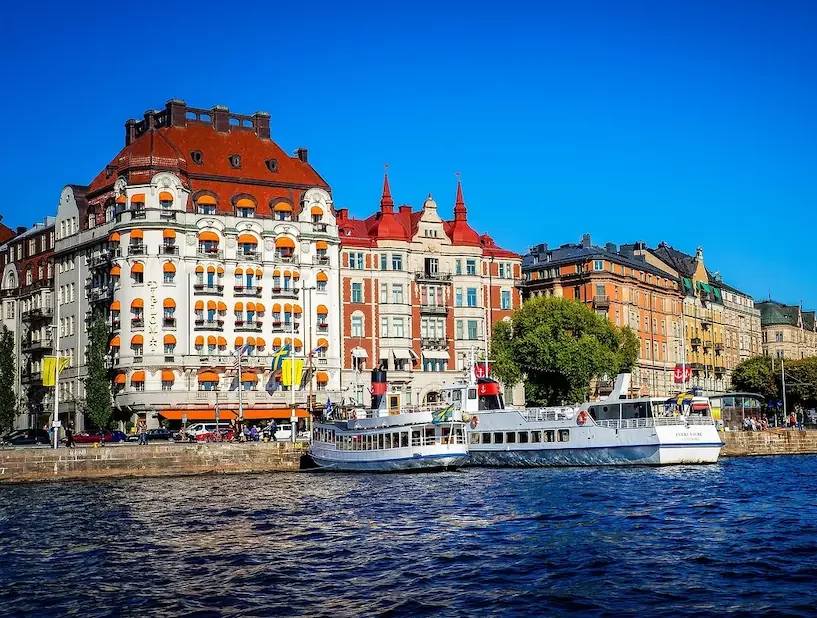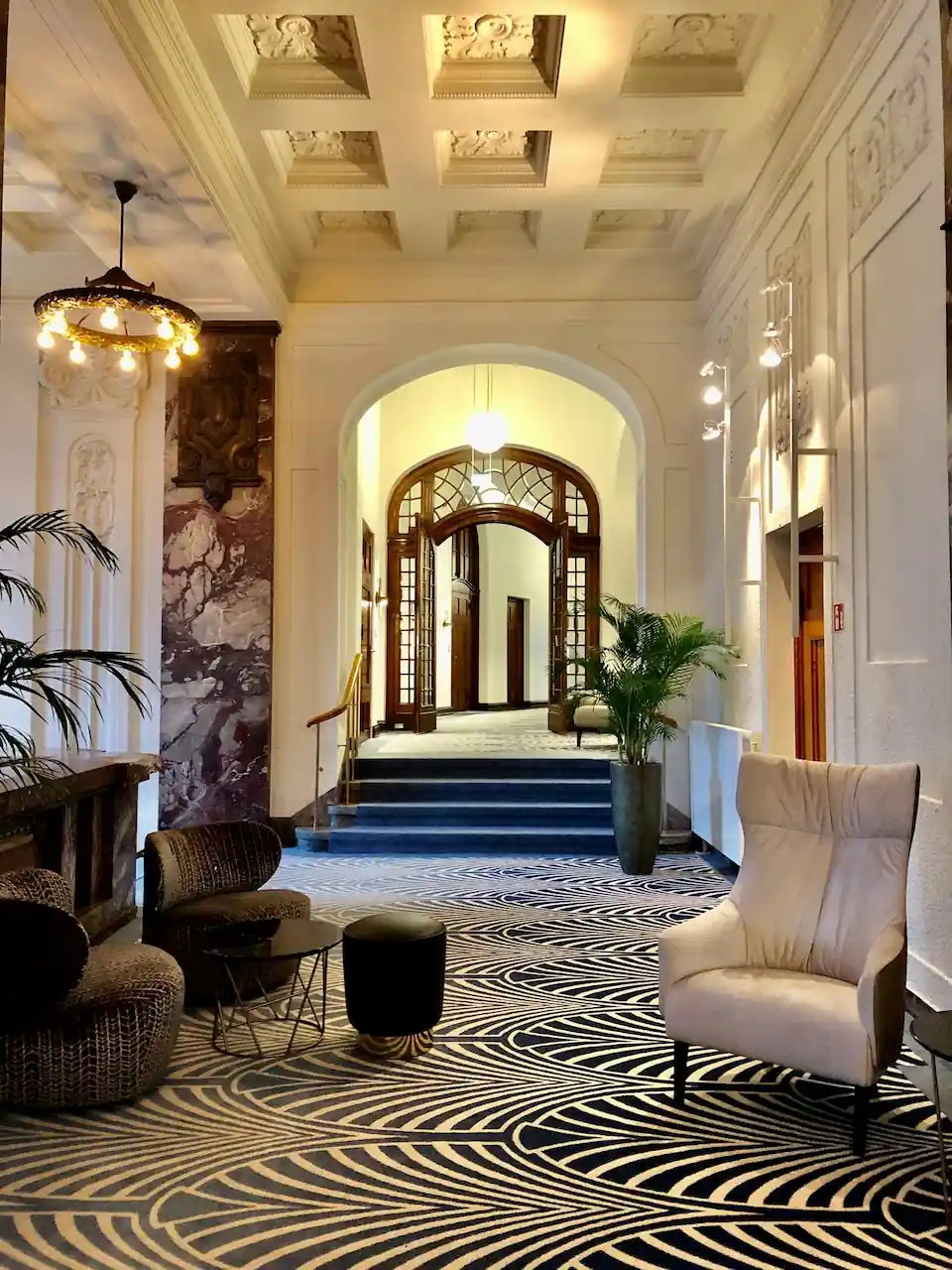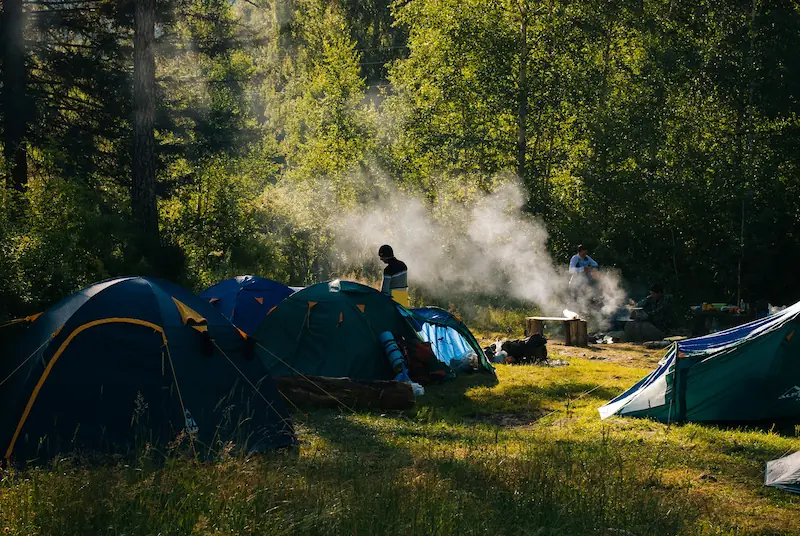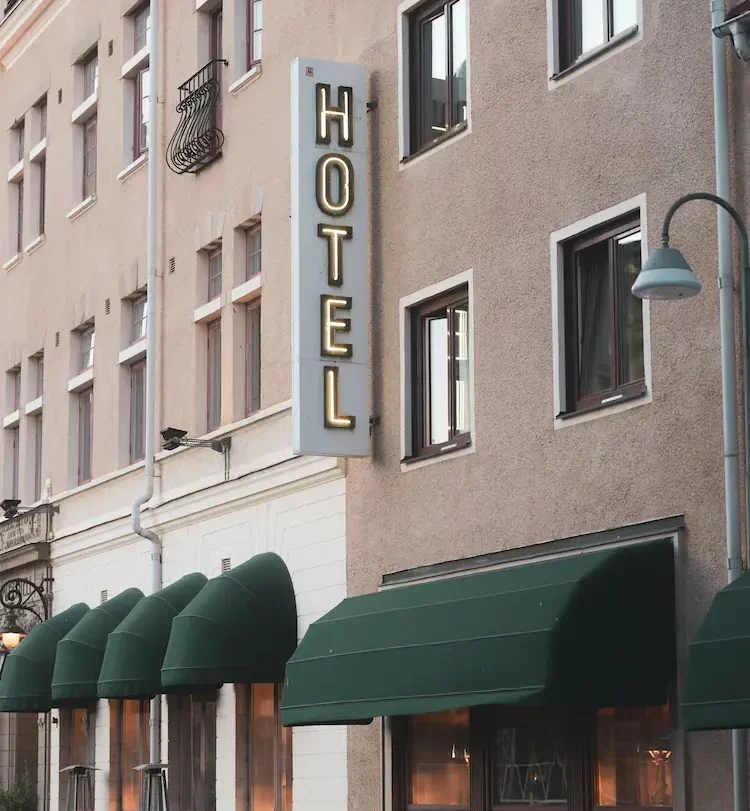Market growth forecast
According to market forecasts, the Swedish hotel market is expected to grow significantly in the coming years. Industry analyses indicate that the Swedish hotel sector will reach a market value of just over USD 6 billion in 2025, with an expected annual growth rate of 4,26% until 2029. This growth is driven by several factors, including increased international tourism, improved economic conditions and a strong domestic travel market.
Summer season 2025
For the summer of 2025, the forecasts look particularly promising. According to Visita's latest report, an increase of around 3% is expected in the overall demand for hotel rooms. Particularly interesting is the development in August, where bookings already show an increase of 11% compared to the previous year. This indicates an increased interest from international visitors.
The strong performance in the summer months can be attributed to several factors:
- Increased demand from Nordic neighbouring countries
- Domestic tourism remains strong
- Attractive exchange rates for international visitors
- Recovery of events and festivals
- Increased interest in sustainable travel in the Nordic region
Changing booking patterns
Data shows that Swedish guests tend to book later than in the past, often influenced by weather and economic factors, while international guests have more traditional booking patterns.
This trend has several implications for the hotel industry:
- Need for more flexible pricing strategies
- Increasing importance of weather forecast-based pricing
- More focus on last-minute marketing
- Customised booking conditions for different target groups
Regional development and market dynamics
Regional developments show several interesting patterns that are shaping the future of the industry. While metropolitan areas are still recovering from the effects of the pandemic, other parts of the country are showing strong growth:
Metropolitan areas
- Stockholm: Shows signs of recovery but is 5% below 2019 levels.
- Gothenburg: Strong growth with 11% increase, driven by both leisure and business travellers.
- Malmö: Impressive development with 57% increase in Nordic guest nights.
Other Sweden
Destinations outside major cities show particularly positive developments with an increase of 10% compared to previous years. This can be attributed to several factors:
- Increased interest in nature tourism and rural experiences
- Strong development of domestic tourism
- Improving infrastructure and accessibility
- Growing interest in local experiences and culture
Economic indicators and market impact
The economic outlook for 2025 gives reason for cautious optimism. The National Institute of Economic Research predicts real wage increases and growth in the Swedish economy. The Riksbank's expected interest rate cuts in the autumn of 2025 may also contribute positively to the industry's development.
Several economic factors influence market developments:
- Expected stabilisation of inflation
- Gradual improvement in household purchasing power
- Positive development of business travel costs
- Favourable exchange rates for international tourism
Challenges and adaptation strategies
Despite positive forecasts, the industry faces several challenges that require strategic adaptation:
Conference and business segment
With a decline of 12% in the conference segment, hotels need to develop new strategies:
Development of hybrid meeting concepts
Hotels can invest in modern technology to enable hybrid meetings where participants can connect both physically and digitally. This includes, among other things, high-quality audio and video equipment and flexible booking systems to maximise the experience.
Adapting conference facilities for smaller groups
With an increased demand for intimate meetings, hotels need to create customisable conference rooms with modular furniture, good acoustics and an inspiring environment. Smaller groups often value a more personalised service and a comfortable atmosphere, which can increase customer satisfaction.
Focus on day conferences and local business events
By targeting daytime conferences and shorter meetings, hotels can attract more local businesses looking to hold effective meetings without overnight stays. Flexible half- and full-day packages, including meals and activities, can help increase the occupancy of conference rooms during weekdays.
Packaged solutions for business customers
Hotels can differentiate themselves by offering customised packages of experiences, such as team-building activities, gastronomic experiences or wellness elements. By creating holistic solutions, they can attract companies looking for more than just a meeting room. They want a holistic solution that makes the meeting more effective and engaging.
Staffing and skills
The sector continues to face challenges with skills supply:
Need for continuous professional development
To meet the changing demands of the industry, it is crucial that hotels invest in training and upskilling. This can include in-house training, partnerships with vocational schools, and digital courses in areas such as guest service, leadership and new technologies. By creating a learning culture, staff skills and motivation are enhanced.
Strategies to attract and retain staff
To compete for labour, hotels need to focus on attractive employment conditions, career development opportunities and a positive working environment. Flexible schedules, clear development opportunities and an inclusive company culture can help reduce staff turnover and create long-term commitment.
Increased digitalisation and automation
Technological solutions such as self-service check-in and smart booking systems can streamline operations and reduce the administrative workload of staff. By integrating digital tools, hotels can improve both the guest experience and the working conditions of their staff.
Focus on sustainable workforce planning
To create a long-term sustainable work environment, hotels need to work strategically with scheduling and staffing. By optimising working hours, avoiding overtime and investing in a good working environment, companies can reduce stress and sick leave. A balance between flexibility and security is crucial to retain a satisfied and loyal workforce.
Guests today have higher expectations. Let us show you how we can take your business to the next level.
Long-term trends and outlook
In the longer term, the Swedish hotel market is expected to continue to grow. Market forecasts show continued growth until 2029, with an expected market size of USD 7.17 billion. This development is driven by several long-term trends:
Increased focus on sustainable travel
Demand for eco-friendly experiences is growing and guests expect sustainable options. To meet this demand, hotels can invest in energy-efficient solutions, reduce food waste, prioritise local and organic products and offer sustainable transport options. Certifications such as Green Key, Nordic Ecolabel or Krav are becoming increasingly important competitive advantages.
Digitalisation and automation of services
The hotel industry is moving towards increased automation to improve the experience and streamline operations. Self-service check-in, mobile keys and AI-powered customer service are becoming more common. Automation frees up staff resources for more value-adding tasks and creates a smoother experience for guests.
Personalised experience
Customers expect a more personalised hotel experience that takes their preferences and needs into account. By collecting and analysing guest data, hotels can offer personalised room preferences, special offers and tailored activities.
New technology in the hotel experience
Hotels are increasingly investing in smart technologies to improve service and comfort. Voice control, smart mirrors, IoT-based room features and VR/AR for virtual tours are examples of innovations that are raising the bar. Technology is being used both to streamline operations and to create a modern and innovative guest experience.
Development of new concepts and services
To meet changing travel habits and target groups, hotels need to develop innovative concepts. These could be coworking hotels, long-stay solutions, health-oriented accommodation or hotel experiences combined with local activities. By being innovative, hotels can attract a wider range of customers and meet the needs of the future.
Conclusion and future
Overall, the forecasts point to a cautiously positive development for the Swedish hotel industry. With an expected growth of 1-2% for the full year 2025, the industry shows an impressive resilience to economic challenges. The gradual recovery, combined with changing travel patterns and strong regional development, provides good conditions for continued growth in the sector.
To maximise growth potential, hotels need to continue to:
- Adapting to changing customer needs
- Investing in digital solutions
- Developing sustainable business models
- Focus on staff development and skills supply
- Staying at the forefront of technology
For more detailed statistics and analyses, please visit the Visita website, where up-to-date industry reports and forecasts are published regularly.
For hoteliers and industry players who want to be at the forefront of innovative solutions, Modular Visit offers tools to create the hotel of the future. Explore the possibilities and take the next step towards a more efficient and sustainable business.







